Tickets and sponsorships available for An Elderly Wish Foundation’s annual Heart to Heart Benefit
Monday, January 22nd, 2024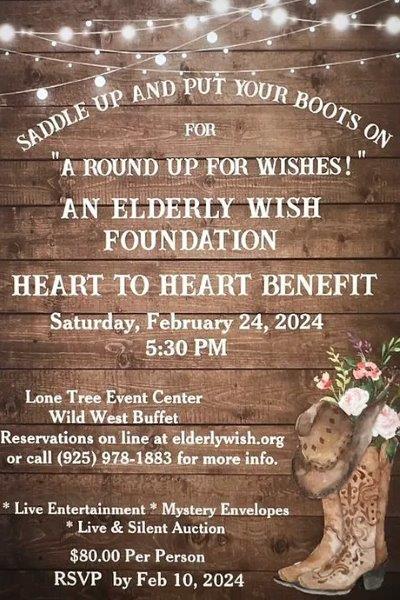
For more information visit www.elderlywish.org.

For more information visit www.elderlywish.org.

Information meeting Jan. 24; application deadline Feb. 2
Contra Costa County Fair Queen serves as a role model for young women in our community.
The pageant is seeking young women who are intelligent, articulate, charming, talented, sincere and healthy (in mind and body) with warm outgoing personalities.
The winner and her court will reign for one year.
Closing date for Application is Friday, February 2nd, 2024.
Contestants must be between the ages of 17 – 21 years old, on the day of the pageant (May 16th, 2024).
Contestant must be female, single, have never been married nor is planning to be married until after her reign, and have never given birth to a child.
Pageant Information Meeting:
Wednesday, January 24th at 6pm, to assist and answer any questions regarding the pageant,
completing the application form and the required activities.
Location: Fair Administration Office
1201 West 10th Street, Antioch
For more information contact Devon Baldocchi, Pageant Director at office@ccfair.org or (925) 783-2275.
Visit www.contracostafair.com for Contra Costa County Fair updates on shows, exhibits, entertainers, fair-time sponsors, fair maps, promotions, ticket sales and more!

January is Sanctity of Human Life Month
January is Sanctity of Human Life Month, and this year Sanctity of Human Life Sunday (SOHLS) is celebrated on Sunday, January 21, 2024. SOHLS is a day for Americans to focus on the value of each and every human life. It is celebrated every year on the Sunday closest to the anniversary of the 1973 U.S. Supreme Court decisions Roe v. Wade and Doe v. Bolton, which legalized abortion in every state for any reason through all nine months of pregnancy.
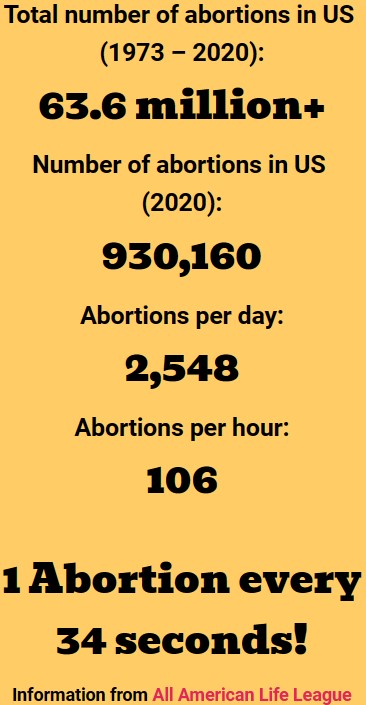
In the past two years, the right to abortion has been one of the most heated discussions in our country.
We rejoice that the Supreme Court overturned Roe vs. Wade in 2022. But this hasn’t stopped abortion; it simply placed the decision back into the hands of each state. While many states have chosen to stop abortions, we still recognize the awful tragedy that, on average, the lives of approximately 98 precious babies are ended every hour!
In response to the Supreme Court’s decision, the abortion industry nationwide has stepped up its efforts of promoting a culture of death by offering abortion as the “smart answer” to an unplanned pregnancy during uncertain times.
One of the best ways to stand against this evil is to come together and openly state “We support and defend the Sanctity of Human Life.”
Pastors, churches and life organizations across the United States use this day to bring awareness to the attacks that are daily waged against human life through the abortion industry.
In 1984, President Ronal Reagan issued a presidential proclamation designating the third Sunday of January as National Sanctity of Human Life Day.
“We have been given the precious gift of human life, made more precious still by our births in or pilgrimages to a land of freedom. It is fitting, then, on the anniversary of the Supreme Court decision in Roe v. Wade that struck down State anti-abortion laws, that we reflect anew on these blessings, and on our corresponding responsibility to guard with care the lives and freedoms of even the weakest of our fellow human beings.”
Ronald Reagan
President
We are continuing that tradition by setting this day aside – January 21, 2024 – as a day to pray for the end of the tragedy of abortion, ask for God’s mercy on our country for this heinous sin, and proclaim loudly that all lives are created in the image of God and should be treated as such.
On Sunday, January 21, we declare the sanctity of all human lives and stand together to protect the lives of each and every unborn baby.
“The Lord called me from the womb, from the body of my mother he named my name.” – Isaiah 49:1
“For you created my inmost being;
you knit me together in my mother’s womb.
I praise you because I am fearfully and wonderfully made;
your works are wonderful,
I know that full well.
My frame was not hidden from you
when I was made in the secret place,
when I was woven together in the depths of the earth.
Your eyes saw my unformed body;
all the days ordained for me were written in your book
before one of them came to be.” Psalm 139;13-16
We would also like to encourage you to focus on the value of human life all month — and all year — long. Watch the video below to find out four ways that you can make a difference for life this January.
A Message for Sanctity of Human Life Month (youtube.com)
Additional information included from Heartbeat International and LifePlan.

Input process continues for Rivertown Community Space begun last May following council direction in Nov. 2021
By Allen D. Payton
The City of Antioch is continuing its effort to obtain public input on the development of a new gathering place in Antioch’s historic, downtown Rivertown. All residents are invited to share their vision for what is expected to be that part of town’s future central attraction. The empty, dirt lot is bordered by W. 2nd and 3rd and E Streets.
City staff is asking for input stating, “This new outdoor public space is uniquely situated along the Sacramento-San Joaquin River. It will benefit our diverse community by fostering a vibrant, thriving downtown. Share your thoughts on what this space should look like and what features it should include.”

The process began last May with an online survey and will continue during two Community Design Workshops on Thursday, Feb. 8 at the Antioch Community Center in Prewett Family Park, 4703 Lone Tree Way and Sunday, Feb. 18 from 4:00 – 6:00 p.m. at the Nick Rodriguez Center, 213 F Street.
The effort follows the city council decision to support the River Town Square proposal by Save The Yard led by former Councilwoman Joy Motts. As previously reported by the Herald, during the Nov. 23, 2021 Antioch City Council meeting, after years of advocating for a park and event center on the former Antioch Lumber Company lot the group was given the go ahead by all five council members to pursue the idea.
“We can begin a process for exploring a community gathering space, a green space,” then-City Manager Ron Bernal said at the conclusion of the meeting.
The City’s downtown hasn’t had a large park, but only the smaller Waldie Plaza, since the much larger Barbara Price Marina Park was replaced with the marina boat launch and parking lot in 2012.
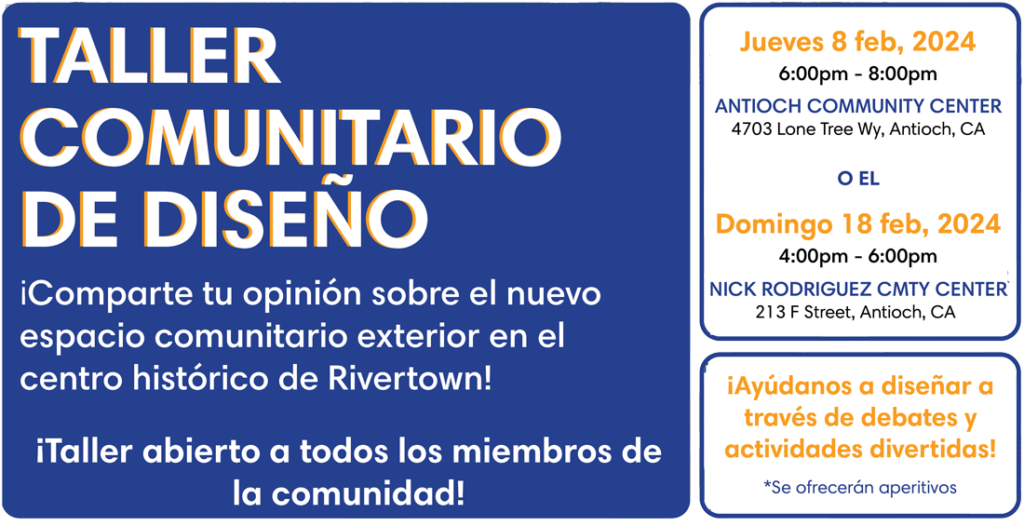
To take the survey and for more information visit Rivertown Community Space.
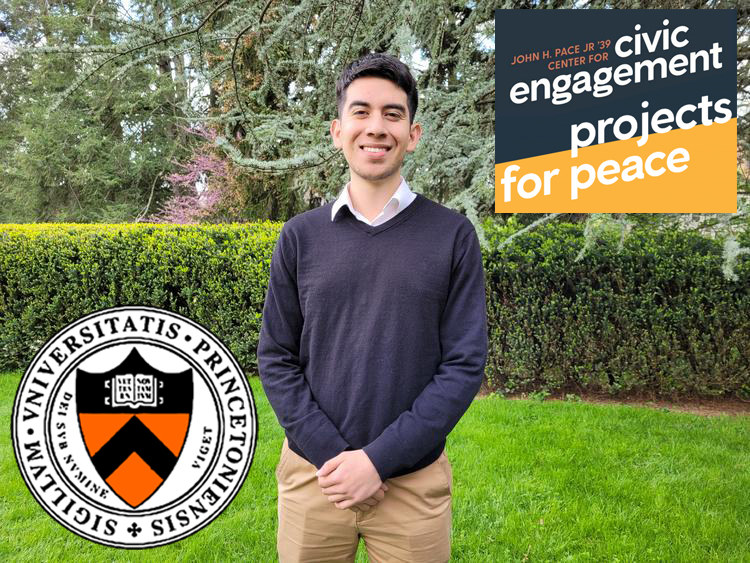
It takes a village: Carlos Cortez – Class of ’24 – and the people of Zináparo bring music and soccer to their youth
By Lou Chen, Trenton Arts at Princeton Program Manager
Originally published by Princeton University’s Pace Center for Community Service. Republished with permission.
Carlos Cortez ’24 straddles two worlds.
The 2020 Dozier-Libbey Medical High School graduate’s family is from Zináparo, a small rural village in Michoácan, Mexico, where few people have ever heard of Princeton University.
The son of Carlos and Eréndira Cortez is a senior at Princeton University, where few people have ever heard of Zináparo.
But Carlos, the student, had an idea to bring these two worlds together. Last year, with the funding he won as Princeton’s 2023 Projects for Peace award recipient, he started a music and soccer summer camp for Zináparo youth.
Now everyone in Zináparo knows Princeton. And Princeton is just getting to know Zináparo.
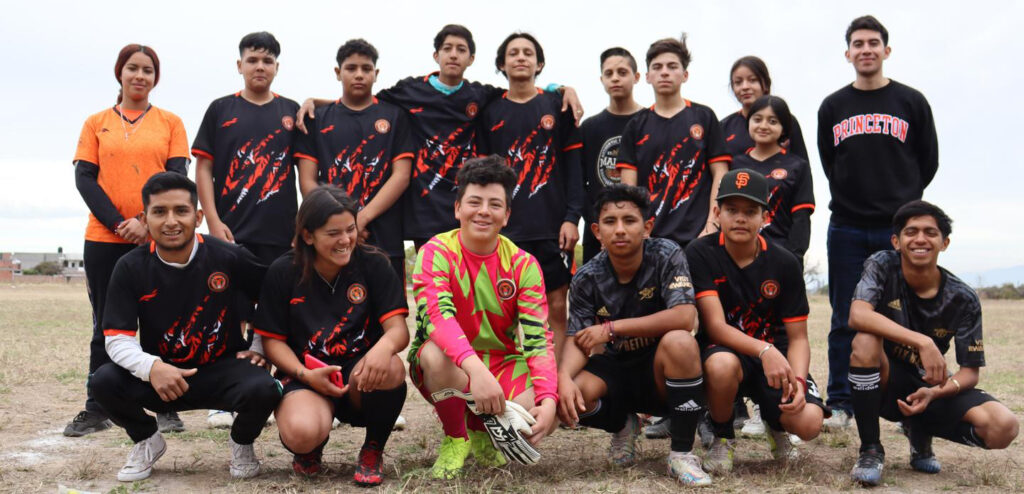
An Idea
Even though Carlos was born and raised in Antioch, California, he considers his real hometown to be Zináparo, where most of his extended family still lives. Twice every year, he travels to Zináparo to enjoy the balmy summers and festive winters, hiking in the nearby mountains and participating in the annual peregrinación (religious pilgrimage).
Accepted into Princeton as a Questbridge scholar, Carlos chose to major in neuroscience and committed to the pre-med track, supplementing his coursework with research and tutoring jobs. Despite his busy schedule, he felt restless. His thoughts constantly returned to Zináparo.
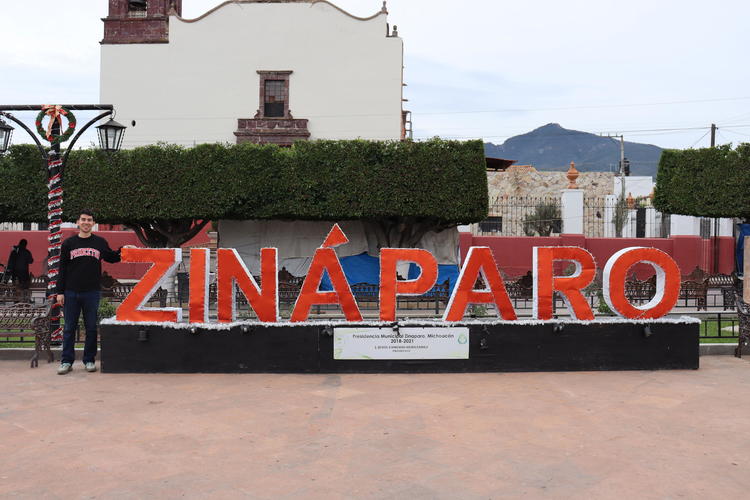
“My dream was to become a doctor and open a pediatric clinic in Zináparo,” he says. “But I realized that it would be many years before I could accomplish this. I didn’t want to wait that long. I wanted a chance to do something now.”
That chance soon arrived. During his junior year, he heard about the Pace Center for Civic Engagement’s Projects for Peace initiative, which provides Princeton undergraduates with a $10,000 award to implement a service project anywhere in the world. With his family’s encouragement, he proposed a music and soccer summer camp for children in Zináparo.
“Growing up in California, music and soccer were very important for me in making community,” he says. “I wanted the kids in Zináparo to have the same experience.”
In the spring of 2023, he won the award.
According to a preview article about his project, “He saw his project as an opportunity to not only influence the youth of his town, but to have positive reverberations for the entire community and surrounding communities as well.
He summarizes this hope as he looks forward to this summer by saying, ‘just like a musical note can travel through both time and space when it is played, I am hopeful of learning how my project’s ideals and goals are going to have transgenerational effects on the future generations of Zináparo and ultimately transcend beyond the borders of my hometown,’ he shared before the project began.”
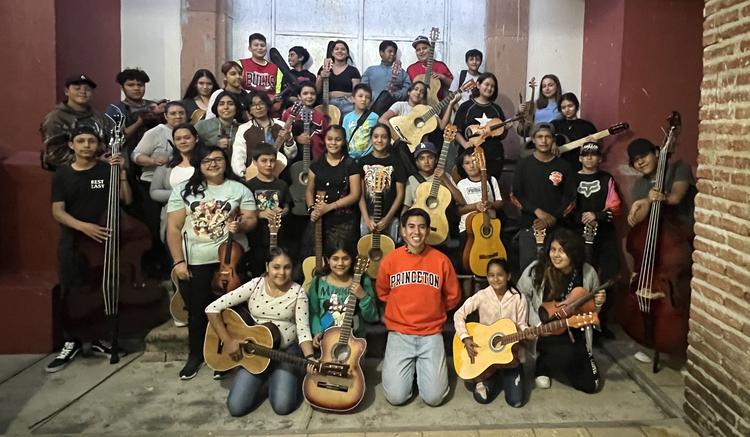
A Village
As any entrepreneur will tell you, the road from idea to execution is a winding one. “Right before arriving in Zináparo, I was feeling that the process would be easy,” Carlos says. “But when I landed in Zináparo, I started to realize that it was going to be a long journey with a lot of challenges.”
The first challenge was recruiting children for the camp, which Carlos had titled, “Musical Notes: A Composition for Peace.” Even though Carlos was a frequent visitor to Zináparo, he remained an unfamiliar face to many people. It didn’t matter that Princeton was supporting the camp; none of the children knew what Princeton even was.
He began by visiting the local high school where his aunt Noemí taught history and ethics, going from classroom to classroom and telling students about his new program. He later found out that one of the students called up Noemí, a widely respected community leader in Zináparo, and told her that someone from Princeton University wanted to start a summer camp. “Do you know about this?” the student asked. “Can we trust him?”
“Of course, you can,” Noemí replied. “He’s my nephew!”
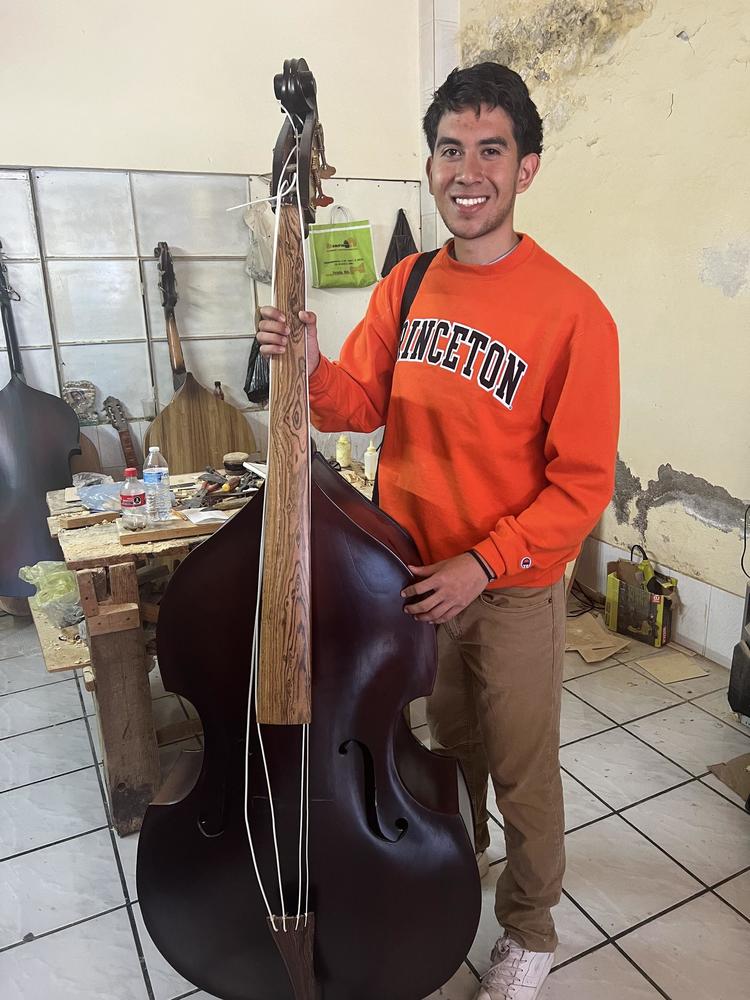
Another challenge was procuring instruments. Almost 40 kids wanted to learn guitar, violin, or bass—but none of them had their own instrument. One hot summer day, Carlos, his younger sister Natalia, his mother, his uncle Adrián, and his grandfather Guillermo piled into the family van and drove two hours to Paracho, a small town in Michoácan that specializes in making instruments. (Paracho inspired the setting of the Oscar-winning animated film Coco.)
Once in Paracho, they purchased several instruments from a local luthier. Somehow, they crammed one bass, five guitars, and seven violins into a van that already contained five people. “I was pressed up against the side of the van,” says Carlos. “It was definitely an experience.” They made several return trips to Paracho for more instruments, and on one occasion, the aforementioned luthier drove a second bass all the way to Zináparo by himself.
Carlos was surprised by how enthusiastically the Zináparo community rallied around the camp. Countless people pitched in: the neighbor who let them use his house for rehearsals; the business owner who let them use his shop for a private recital; and Carlos’ 10-year-old student Hector and Hector’s mother Luz, who cleaned up after every rehearsal. “Without everyone’s help, this project would not have been possible,” says Carlos.
The camp exceeded even Carlos’ wildest expectations. Every Monday through Thursday for two and a half months, almost 100 children aged four to 17 participated in one or more classes: soccer, choir, guitar, and violin/bass. Carlos coached the soccer team and hired teachers for the other subjects. “I wanted teachers who were passionate about working with kids,” says Carlos. “I didn’t want them to treat this as just another way to make money.”
On the last day of camp, his soccer team surprised him with a loud round of applause. One student cried out, “Carlos for president!” Carlos promised to buy them jerseys out of his own money if they continued to practice soccer.
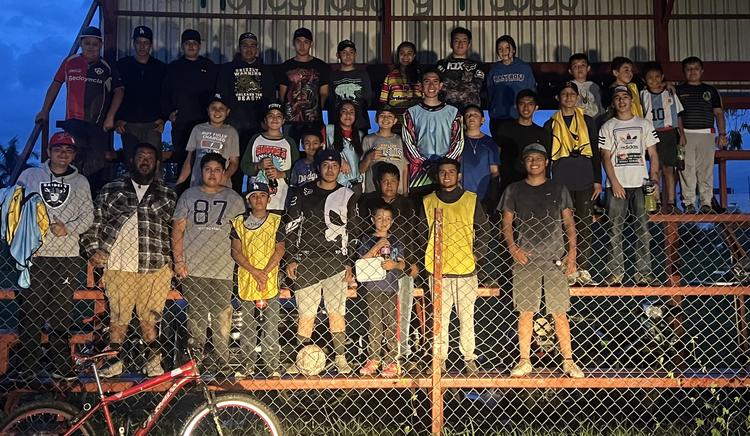
Continue they did. Even though Carlos had to return to Princeton for his senior year, he was determined to keep the camp going. He found two people to coach the soccer team on a volunteer basis; they had recently moved to Zináparo and had long dreamed of coaching their own team. He used his leftover Projects for Peace funding to pay for weekly choral and instrumental lessons for his students until December and let them keep their instruments. Noemí took his place as the point person for the program.
For Carlos, the experience was a blessing. “I just wanted to change the future of even one of the kids,” he says. “I’m seeing that difference already.”
A Debut
On January 7, Carlos woke up with butterflies in his stomach. Today was the debut of Musical Notes: A Composition for Peace. Since the summer, the choir and orchestra (consisting of guitar, violin, and bass) had been rehearsing weekly for a big concert in the Zináparo town square. The entire community had been invited, and Carlos’ extended family in California had flown out to watch.
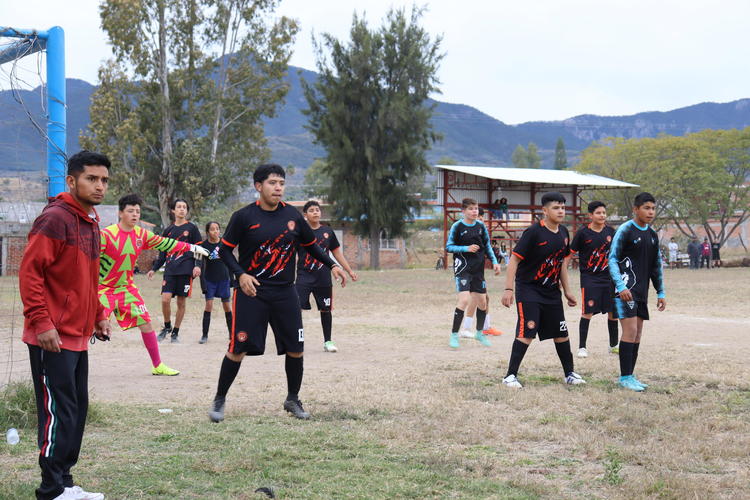
First, Carlos stopped by the soccer field to observe a match between his team and a team from a neighboring town. He had kept his promise: His team was wearing brand-new orange and black jerseys. Natalia had designed the jerseys, including the iconic image of a Princeton tiger glaring through claw marks.
“In one of our first games, we played against a team from a much wealthier town,” says Carlos. “I could tell how discouraged my students were to see how much nicer [the opposing team’s] field was. I got them jerseys because I wanted them to feel proud to be on this team. I wanted them to feel like they were a part of something bigger…like they had the support of Princeton University.” The new jerseys seemed to do the trick: After putting them on, his team won the next game.
After the match, Carlos and his parents walked to the town square to set up for the performance. The owner of the local funeral home, whose daughter was in the choir, had donated 150 chairs for the audience—and had even purchased new ones so that there would be enough.
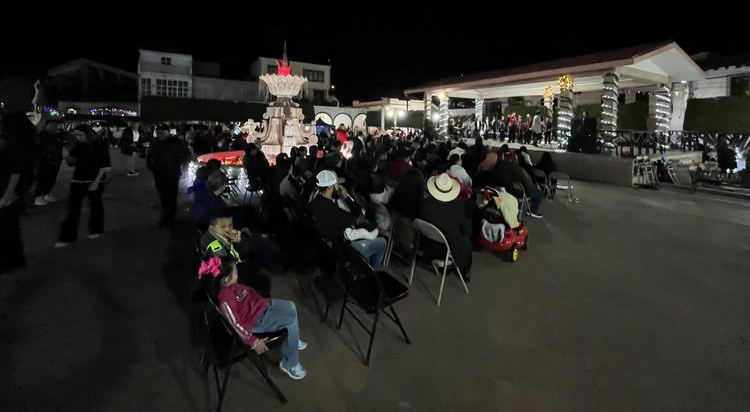
Carlos was worried that not enough people were going to show up to fill the seats. But as people started entering the town square, he realized that he had the opposite problem: He didn’t have enough seats. His family raced to the rehearsal space, grabbed as many chairs as they could, carried them back, and set them up with only minutes to spare. The new chairs were quickly occupied, and latecomers had to stand. At least 350 people were in the audience.
As Natalia helped tune the guitars, she noticed a student looking forlorn. She asked him what was wrong, and he quietly asked if this was the last day of the program. “Of course not,” Natalia assured him. He smiled.
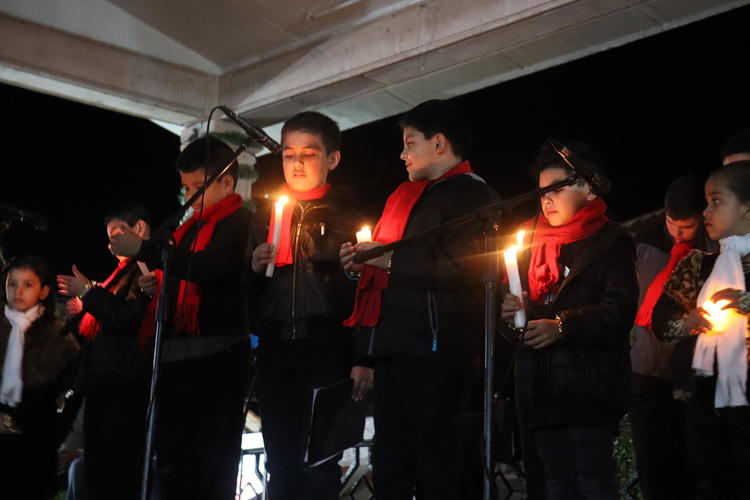
The choir opened the concert with six Christmas carols. During “Noche de paz” (Silent Night), they cradled candles in their hands, their faces glowing as if lit from within. For their final song, “Ven a Cantar” (Sing with Us), they rolled up their sleeves, revealing bracelets made of jingle bells. As they clapped their hands, the ringing of bells filled the crisp winter air.
The orchestra was up next, performing two songs that featured a 15-year-old choral student named Andrea. Her voice, initially hesitant and wavering, gradually grew in power. The guitarists kept the orchestra together with their steady strumming, and the violinists trained their eyes on the conductor, determined not to miss their tremolo entrance. In the very back, a student plucked away at the bass that Carlos had brought back from Paracho.
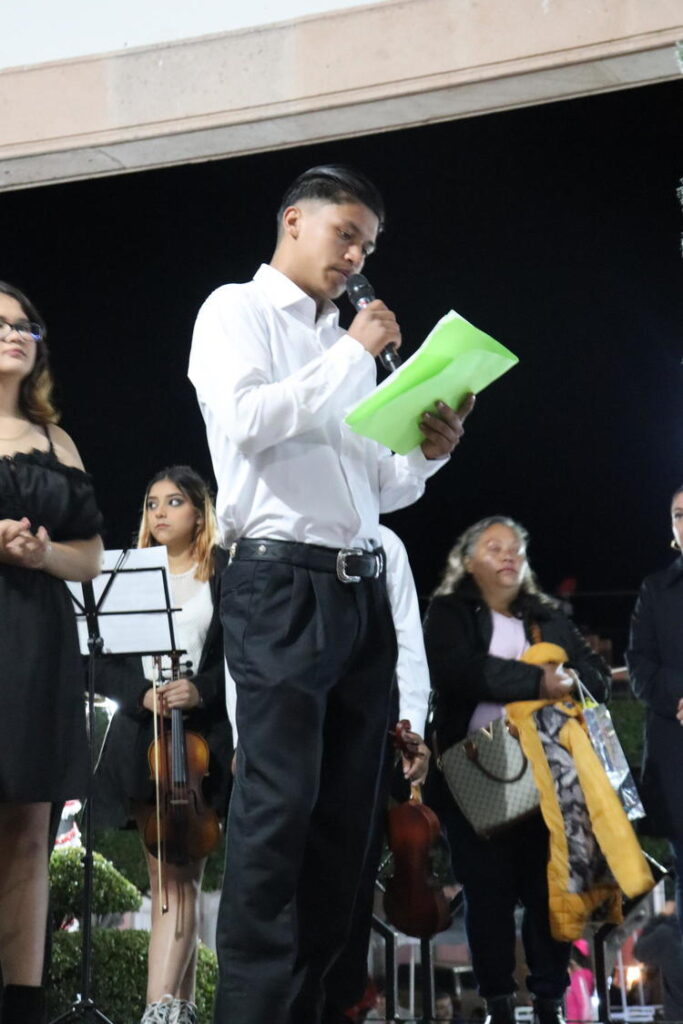
After the orchestra finished, Noemí invited Hector and Luz to the stage and thanked them for keeping the rehearsal space clean. She presented them with gifts and embraced a clearly overcome Luz. The crowd cheered.
Next to speak was Carlos’ student José, who at 17 years old was the oldest member of the program. “I want to give a special thank you to Carlos for giving me and the children of this town the opportunity to learn music,” he said. “I hope this continues…Zináparo needs these programs.”
Carlos walked onstage to deliver the concluding remarks. “Thank you to my grandparents for giving me a love of Zináparo,” he said, choking back tears. “I know I wasn’t born here, but this is my home.”
As Carlos left the stage, he was mobbed by students, parents, complete strangers—all of whom wanted to take a picture with him. Grown men were crying and little kids were beaming. “Before this camp, the children of Zináparo didn’t have anything like this,” said Eréndira. “But now, they do.”
Carlos hopes that the camp will take place every summer, with weekly programming throughout the rest of the year. He hopes that someday his music students will be paid to perform or even to teach. (This is already happening: José has been invited by his guitar teacher to perform in a mariachi band, and Carlos wants him to teach for the camp.) He hopes to solicit donations from Zináparo residents who have immigrated to the United States, and to potentially seek funding from the Mexican government.
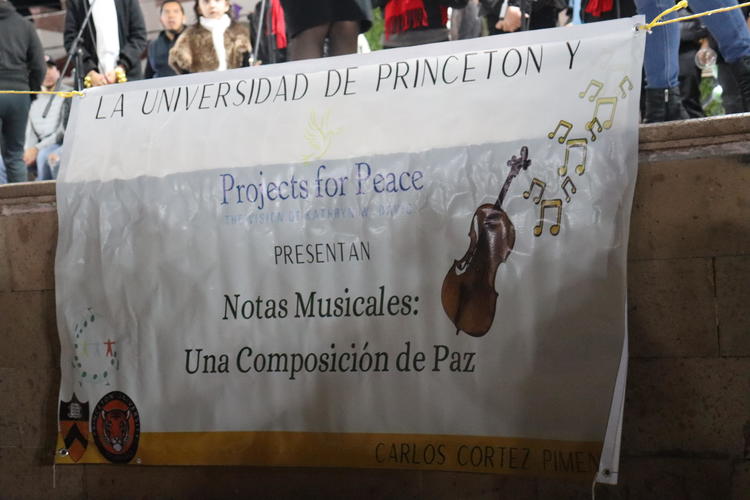
These are all big dreams. It’s a lot for one Princeton student—and soon-to-be-alum—to take on alone.
But Carlos knows he isn’t alone. “I feel honored to have so many different communities believe in the project,” he says. “It ensures the life of the project, because there are so many people invested in wanting to see the kids succeed.”
To learn more about Musical Notes: A Composition for Peace, follow them on Instagram. Their full debut performance can be viewed on YouTube.
Allen D. Payton contributed to this report.
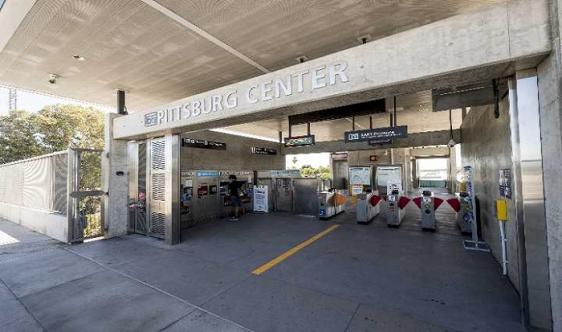

By BART.gov
At 3:51 pm on Friday, January 19, 2024, BART Police received a call about a shooting that occurred on the platform of Pittsburg Center Station located at 2099 Railroad Avenue. The initial report was that a male suspect shot a male victim and fled the scene. The victim was taken to an area hospital and remains in critical condition.
A few hours later a second male victim who had also been shot showed up at an area hospital. The second victim remains in stable condition with a wound to his leg. BART PD is working to determine a motive for the shooting. At this point, investigators believe the shooting was not random.
The incident forced the shutdown of Pittsburg Center Station for approximately 4 1/2 hours so investigators could gather evidence. Investigators are also reviewing surveillance video captured by platform cameras at the station. The station was reopened and normal service restored.

By Antioch Police Department
The Antioch Police Department is seeking assistance in locating a vehicle involved in a hit-and-run with injuries. The collision occurred on January 14, 2024, at approximately 12:50 am. in the intersection of Laurel Road and Canada Valley Road. If you have any information related to this hit-and-run, please call our Investigations Department at 925-779-6925.

About 1.2 million signatures needed by February 5th to qualify the Repeal the Death Tax Act for November’s ballot
Download your petition below to help
By Katy Grimes
This article was first by the California Globe. Republished with permission.
Last week when Gov. Gavin Newsom was sharing his proposed 2024-2025 budget, he insisted that he was opposed to a proposed wealth tax. And sure enough, Assembly Bill 259 by Assemblyman Alex Lee (D-Palo Alto), which will impose an annual “worldwide net worth” tax of 1 percent on net worth above $50 million, rising to 1.5 percent on net worth over $1.0 billion, was killed in committee that afternoon.
However, the governor has been mum about another type of wealth tax – California’s sneaky Death Tax, which adds a new tax on property inherited by a family member, which was already was taxed over the years of ownership.
In 2020, Proposition 19 resurrected the Death Tax on families whose property is left to loved ones when they die, putting their homes, property and businesses at significant risk. While the initiative was cleverly disguised as a benefit for the elderly and disabled communities, Proposition 19 caused far more harm than good.
In May, Senator Kelly Seyarto (R-Murrieta) introduced Senate Constitutional Amendment 4, to restore taxpayers’ property rights by reversing the state’s “death tax” written into in Proposition 19. Deviously titled “the Property Tax Transfers, Exemptions, and Revenue for Wildfire Agencies and Counties Amendment,”
SCA 4 would have reversed one of the largest property tax increases in state history, a little-noticed provision of Proposition 19 that revoked the ability of families and parents to pass property to their children without any change to the property tax bill, according to the Howard Jarvis Taxpayers Association.
However, Democrats killed Seyarto’s SCA 4 in a legislative committee.
I remember when the Death Tax was first slayed.
“It was 1986 when the parent-child exclusion from reassessment was first added to the state constitution,” Susan Shelly recently wrote. “A growing number of Californians were angry to discover that state law treated death and inheritance as a “change of ownership” under Prop. 13, triggering reassessment to current market value just as if it was a sale. The legislature proposed a constitutional amendment that would allow parent-child transfers of a home and a limited amount of other property, such as a small business or a rental property, without reassessment.”
“The parent-child transfer protection passed by a unanimous vote in both houses of the legislature, and then was approved by 75% of voters statewide.”
Howard Jarvis Taxpayers Association (HJTA) elaborates on how Proposition 19 hurts taxpayers:
Proposition 19 had two main elements. The first was expanded “portability” of base-year property taxes. Homeowners who are 55 years of age or older, who are victims of a wildfire, or who are disabled may now move to a replacement home anywhere in the state, of any value, and take the base-year property tax assessment of the old home with them to a new home up to three times.
Now to the other part of Proposition 19. Previously under the state constitution, property transfers between parents and children, and sometimes grandparents and grandchildren, were excluded from reassessment. These family members could transfer a home of any value and up to $1 million of assessed value of other property, such as a small business property, a vacation cabin, or a rental property, without any increase in the property tax bill. This taxpayer protection was added to the state constitution in 1986 by Proposition 58 (parents and children) and in 1996 by Proposition 193 (grandparents and grandchildren) with overwhelming public support.
Proposition 58 was approved by more than 75% of California voters, and Proposition 193 was approved by nearly the same margin. Now, these taxpayer protections are gone.
Proposition 19 has replaced 58 and 193 with a very narrow exclusion for family transfers of property. Only a principal residence that the inheriting child occupies as his or her permanent primary residence is eligible for an exclusion from reassessment. Unless the new owner can move in within one year, the property is reassessed to market value. Business properties and rental properties lose the protection entirely.
So, what can be done?
Susan Shelly continues, “the Howard Jarvis Taxpayers Association, where I am on staff as VP of Communications, is collecting signatures to put an initiative on the ballot that would repeal the tax increase that was hidden in Prop. 19, without touching the other provisions in it. The official petition is available at RepealTheDeathTax.com and can be downloaded and printed on one sheet of ordinary letter-size paper. This enables instant distribution of the petition throughout the state. Theoretically, a million people could download the petition at the same time, fill it out and sign it, and have one other registered voter in the household also sign it.”
It’s easy. Click on RepealTheDeathTax.com and/or
Click here to DOWNLOAD the official petition RIGHT NOW
RepealTheDeathTax.com has more details HERE:
Please note: You must print and sign the petition with paper and ink. It’s not electronic.
Follow the easy instructions. And please note:
DEADLINE EXTENDED! Return signed petitions to HJTA postmarked by FEBRUARY 5
Download the official, legal petition to put the REPEAL THE DEATH TAX initiative on the November 2024 ballot.
Complete instructions are included in the pdf file.
Get your petition in the mail ASAP – before February 5th.
Katy Grimes, the Editor in Chief of the California Globe, is a long-time Investigative Journalist covering the California State Capitol, and the co-author of California’s War Against Donald Trump: Who Wins? Who Loses?